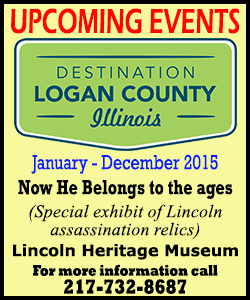|
 Craig Stephen Hicks, 46, a full-time paralegal student from Chapel
Hill, was charged with first-degree murder in Tuesday's shootings
around 5 p.m. two miles (three km) from the University of North
Carolina campus. Craig Stephen Hicks, 46, a full-time paralegal student from Chapel
Hill, was charged with first-degree murder in Tuesday's shootings
around 5 p.m. two miles (three km) from the University of North
Carolina campus.
The victims were newlyweds Deah Shaddy Barakat, 23, a University of
North Carolina dental student, and his wife Yusor Mohammad, 21, and
Yusor's sister, Razan Mohammad Abu-Salha, 19. All were involved in
humanitarian aid programs.
Students at UNC, where Yusor Mohammad was going to join her husband
as a student later this year, gathered on Wednesday for an evening
vigil and prayer service.
The suspect, in handcuffs and orange jail garb, appeared briefly on
Wednesday before a Durham County judge who ordered him held without
bail pending a March 4 probable cause hearing.
Police said a preliminary investigation showed the motive to be a
parking dispute. They said Hicks, who has no criminal history in
Chapel Hill, turned himself in and was cooperating.

The killings drew international condemnation. The shooting sparked
the hashtag #MuslimLivesMatter on social media with many posters
assailing what they called a lack of news coverage.
"I guess that Muslims are only newsworthy when behind the gun, not
in front," tweeted a poster who goes by the handle @biebersrivals.
Muslim activists demanded authorities investigate a possible motive
of religious hatred.
"We understand the concerns about the possibility that this was
hate-motivated and we will exhaust every lead to determine if that
is the case," Chapel Hill Police Chief Chris Blue said in a
statement.
Hundreds of people gathered on the UNC campus Wednesday evening for
a candlelight vigil for the victims.
University and city leaders urged inclusiveness during a time of
unease, while a brother of one of the victims called for
nonviolence.
'EXECUTION-STYLE MURDERS'
The killings occurred in a condominium complex in a wooded area
filled with two-story buildings. Neighbors said parking spaces were
often a point of contention.
"I have seen and heard (Hicks) be very unfriendly to a lot of people
in this community," said Samantha Maness, 25, a community college
student. But she said she had never seen him show animosity along
religious lines.
On Facebook, Hicks' profile picture reads "Atheists for Equality"
and he frequently posted quotes critical of religion. On Jan. 20 he
posted a photo of a .38-caliber revolver that he said was loaded and
belonged to him.
Hicks' wife, Karen Hicks, told reporters at a news conference that
her husband had been locked in a longstanding dispute over parking
and the killings had nothing to do with religion. She said Hicks was
not hateful and believed "everyone is equal."
Barakat's family urged the shooting be investigated as a hate crime
and said the three were killed with shots to the head.
[to top of second column] |

"Today, we are crying tears of unimaginable pain over the
execution-style murders," Barakat's older sister Suzanne told
reporters. She said her brother was light-hearted and loved
basketball.
The incident appeared to be isolated and not part of a targeted
campaign against North Carolina Muslims, Ripley Rand, U.S. Attorney
for the Middle District of North Carolina, told a news conference
with local police officials.
Imam Abdullah Antepli, chief representative of Muslim affairs at
Duke University, told the news conference it may or may not have
been a hate crime and called for an easing of tensions.
A TURNING POINT?
Groups including the Muslim Public Affairs Council, the Council on
American-Islamic Relations (CAIR) and the local Raleigh-based
Muslims for Social Justice called for a federal investigation into
possible hate crimes.
"I hope this terrible tragedy will be a turning point that brings
the reality home that if we keep demonizing Muslims and equating
their religion to terrorism, it will lead to more attacks," said
Manzoor Cheema, co-founder of Muslims for Social Justice.
Barakat, an American citizen of Syrian origin, wrote in his last
Facebook post about providing free dental supplies and food to
homeless people in downtown Durham. He was raising funds for a trip
to Turkey with 10 other dentists to provide free fillings, root
canals and oral hygiene instruction to Syrian refugee children.
His sister-in-law, Abu-Salha, a sophomore at nearby North Carolina
State University, was involved in making multimedia art to spread
positive messages about being Muslim American.

Students at UNC said the three friends came from two of the most
prominent Muslim families in the Raleigh area.
"Deah was a very proud Muslim American. He was proud of all his
identities," said Sofia Dard, a 21-year-old senior psychology major.
She said Muslims were used to occasional harassment in post-9/11
America, but the shooting "adds a whole level of seriousness."
(Additional reporting by Marti Anne Maguire in Raleigh, Laila
Kearney, Franklin Paul and Curtis Skinner; Writing by Fiona Ortiz in
Chicago; Editing by Howard Goller and Cynthia Osterman)
[© 2015 Thomson Reuters. All rights
reserved.]
Copyright 2015 Reuters. All rights reserved. This material may not be published,
broadcast, rewritten or redistributed. |